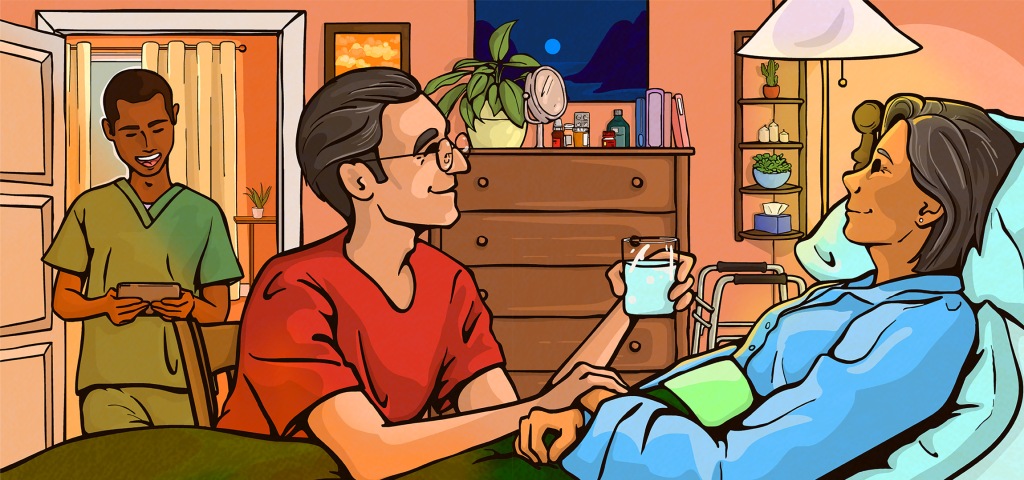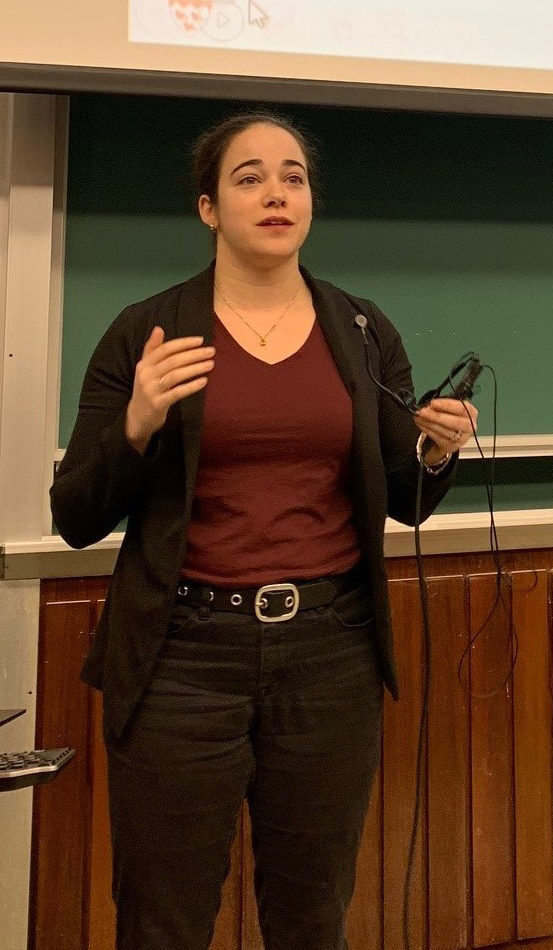“Informal Caregiver”
Featured currently in ANS is the article titled “‘Informal Caregiver’ in Nursing: An Evolutionary Concept Analysis”, authored by Aimee R. Castro, MSc(A), RN; Antonia Arnaert, PhD, RN; Karyn Moffatt, PhD; John Kildea, PhD; Vasiliki Bitzas, PhD, RN, and Argerie Tsimicalis, PhD, RN. Here, nurse and PhD candidate Castro reflects on how knowledge products – including this concept analysis – keep evolving, just as Rogers argues in her methodology.
Evolving the label of “informal” care towards a strengths-based connotation
Given that April 4th was National Caregiver Day in Canada, and President Biden also declared April as Care Workers Recognition Month, April seems like an appropriate time to further reflect on the spectrum, boundaries, and potential of informal and formal caregiving work.
I think it’s important for academics – professionals whose job it is to become leading experts in specific areas of knowledge – to take theoretical leaps. We should take big swings at ideas that maybe don’t always “reveal themselves in the data” but that, based on our years of rigorous study and lived experience, bubble to the surface of our minds as potential expansions of knowledge. These inspirations most often occur in collaboration with others, and they develop slowly over time.
I was privileged enough to have just such a theoretically enriching collaboration. This conversation expanded my ideas of how the concept of “informal caregiver” might evolve even further than we suggested in our original publication, which was based on data from 48 articles. Specifically, in this post, I argue that the “informal” label can and should be reclaimed as having its own strengths that complement weaknesses arising from “formal” labels and rules.
This reflection came about during a lunch and learn presentation of our concept analysis with the palliative care research network of Quebec (RQSPAL). The moderator, Psychology PhD candidate Émilie Cormier, pointed out that we had defined “informal” by what it was not – i.e., not paid, not trained, and not formally organized. But what if we had defined it by what it is – more individualized, and perhaps, creative, than formalized or standardized roles can be? She also shared how in her work with palliative care populations experiencing homelessness, she’s noticed that sometimes clients’ formal care providers (such as their social workers and nurses) become clients’ informal caregivers during end-of-life. Such formal roles may transition into more informal relationships over the years, because of these populations’ often more limited informal support networks.
We talked about the freedom and opportunities that can arise when we’re allowed to drop the boundaries and responsibilities created by our formal titles, and instead be informal creative collaborators in the life journeys of others. And we reflected on the moral distress that can also arise, when our clinician orders and institutional rules tie our hands, preventing us from truly supporting patients’ individual needs (homeless shelters that restrict certain prescriptions comes to mind; as do hospital units that don’t allow pets to be with patients at end-of-life, and standards that require waking patients up early to take their blood pressure or give insulin, but that ignore the consequences of sleep deprivation). There’s also something here to consider about how patient-centered care necessitates critical thinking and adaptations of formal rules. After all, no set of guidelines can ever fit every patient’s unique needs.
As Rogers’ methodology recognizes, no paper or concept is ever “finished”. So, having authored this initial concept analysis of “informal caregiver”, I’d like us to consider evolving it further: What if “informal” can be seen as a strength, not just less-than-or-equal-to “formal” work, but rather – offering creative opportunities to color outside the lines of formal guidelines? What if we need both, informal (freer and more creative) and formal (standards and structure) dimensions in all of our caring roles?
For further information on Aimee Castro’s research, as well as to connect, please follow her on Twitter (@AimeeRCastro) and visit: https://aimeecastro.com/irespite-services-irepit/ .







Trackbacks & Pingbacks